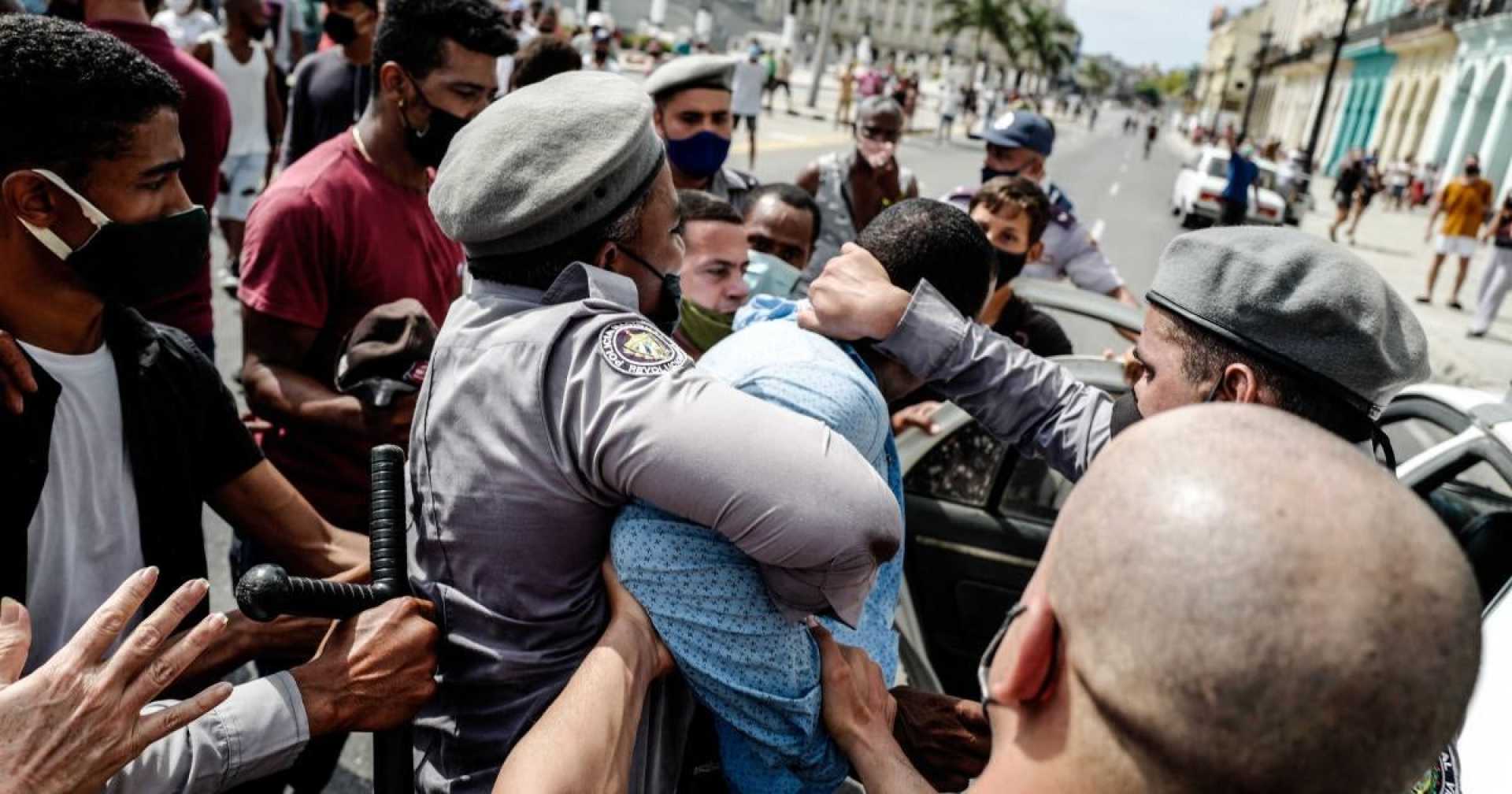World
Cuban Political Prisoners Face Severe Abuses in Detention

Mexico – Human Rights Watch (HRW) released a report today detailing severe abuses faced by political prisoners in Cuba, particularly those detained during the peaceful protests in July 2021. Despite negotiations that led to some releases in January, hundreds remain imprisoned under dire conditions.
According to testimonies from 17 former detainees, many reported being subjected to beatings, solitary confinement, and unsanitary living conditions. Juanita Goebertus, Americas director at HRW, stated, ‘Four years ago, the Cuban government unleashed repression on thousands of Cubans who peacefully took to the streets demanding rights and freedoms. Today, hundreds remain behind bars in dismal conditions.’
The report reveals that prisoners described various forms of mistreatment, such as being forced into stress positions, including a position referred to as ‘the bicycle,’ which involves running handcuffed with arms raised. One detainee, José Daniel Ferrer, leader of the opposition movement UNPACU, recounted being punished for protesting during a family visit. He stated, ‘I was lying on the floor, [a prison official] kicked me and fractured my nasal septum.’
Former detainees also highlighted overcrowding and lack of access to food and clean water, with one former inmate saying, ‘If your family isn’t bringing you food, you die.’ Many described the food provided as inedible, even infested with worms, and outbreaks of diseases such as tuberculosis and scabies went untreated.
In the aftermath of the protests, Cuban authorities released 553 prisoners following a deal facilitated by the Vatican and the U.S. government. However, many released individuals are subjected to strict conditions, including prohibitions on participating in protests and reporting to state security agents regularly. This environment has created a feeling of ongoing imprisonment for those released, as stated by one former detainee: ‘Although I was released from prison, I am still a prisoner. It’s like being a prisoner in the street.’
Currently, approximately 420 individuals are still imprisoned for their involvement in the protests, with many facing harsh sentences for violations like ‘sedition.’ As calls for international condemnation of these human rights violations grow, advocates urge governments across Latin America and Europe to demand accountability and better support for independent human rights efforts in Cuba.












